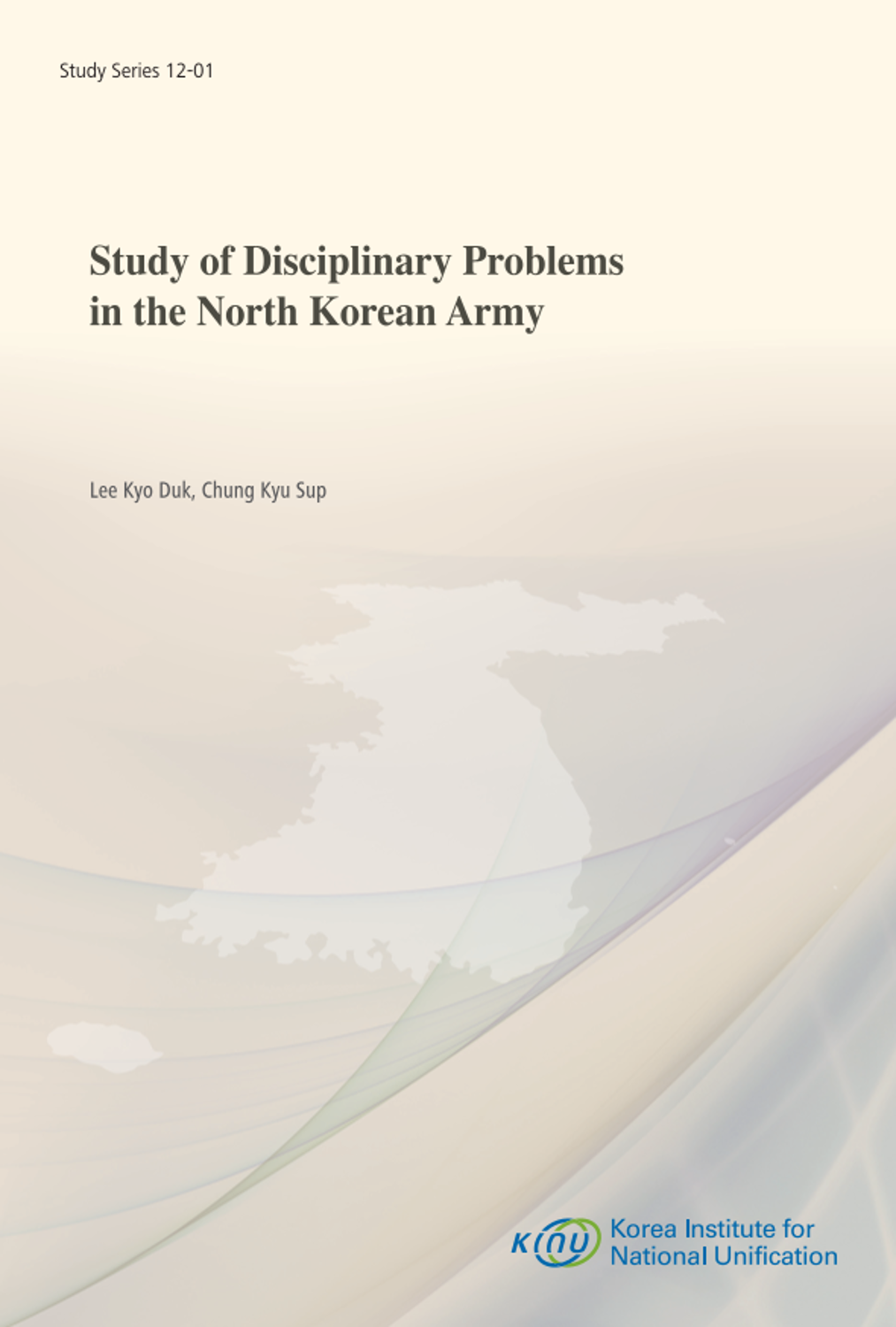
연구원발간물Study Series 2012-01
Study of Disciplinary Problems in the North Korean Army
- 발행사항
- Seoul : Korea Institute for National Unification, 2012
- 형태사항
- 64 p. ; 24 cm
- 총서사항
- Study Series
- ISBN
- 9788984796607
- 청구기호
- 000 SS12-01
소장정보
| 위치 | 등록번호 | 청구기호 / 출력 | 상태 | 반납예정일 |
|---|---|---|---|---|
이용 가능 (2) | ||||
| 1자료실 | G0014252 | 대출가능 | - | |
| 1자료실 | G0014253 | 대출가능 | - | |
이용 가능 (2)
- 등록번호
- G0014252
- 상태/반납예정일
- 대출가능
- -
- 위치/청구기호(출력)
- 1자료실
- 등록번호
- G0014253
- 상태/반납예정일
- 대출가능
- -
- 위치/청구기호(출력)
- 1자료실
책 소개
1. Purpose of Study
The word that best represents the Kim Jong-il regime is the “Military-First” policy. In order to attribute more historical significance and legitimacy onto Kim Jong-il’s “Military-First” policy, North Korea expedited the date of its inception from January 1, 1995 to August 25, 1960. However, it is evident that the “Military-First” system is a political system unique to Kim Jong-il.1)
The purpose of the “Military-First” policy, which puts the military at the forefront of politics, is a response to external threats by strengthening North Korea’s military capabilities, while internally highlighting the importance of the Korean People’s Army (KPA) as a means of preventing the disintegration of the regime.
In order for the “Military-First” policy to succeed in stabilizing and strengthening the regime, the ideological education of the military must first be perfected. The degree of ideological discipline within the North Korean military is measured by the level of troop morale and close compliance to regulations. As a result, North Korean authorities have emphasized that “regulations are the heart of the military. An army without regulations will be defeated in battle. Therefore, adherence to military regulations with an iron will is the foundation of the revolutionary army.”...
목차
Ⅰ. Introduction
1. Purpose of Study
2. Research Method
Ⅱ. Types of Disciplinary Problems: Content Analysis
1. Negligence in the Execution of Kim Jong-il’s Directives
2. Misappropriation and Diversion of Military Supplies
3. Abuse on the Public
4. Alcoholism in Military Units
5. Assault
6. Desertion
7. Disclosing Classified Information
8. Prevalence of Western Influences and South Korean Culture
Ⅲ. The Extent and Characteristics of Disciplinary Problems: Quantitative Analysis
1. Negligence in the Execution of Kim Jong-il’s Directives: Degree of Loyalty toward Kim Jong-il (4.00)
2. Misappropriation and Diversion of Military Supplies (3.30)
3. Abuse on the Public (3.28)
4. Alcoholism in Military Units (3.16)
5. Assault (2.80)
6. Desertion (2.73)
7. Disclosing Classified Information (2.17)
8. Prevalence of Western Influences and South Korean Culture (2.31)
Ⅳ. Conclusion

